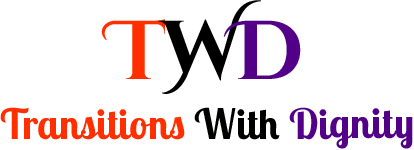TWD #16 Trusts, Wills, and Estates for a Smooth Transition

Hello dear friends. Today, let’s venture into an area that, while complex, is absolutely vital when planning for our loved ones’ future. The realm of trusts and estate planning. You might feel a slight shiver of apprehension at the mere mention of these terms, but fear not! My aim here is not to overwhelm. Rather it is to provide a basic understanding that can serve as a stepping stone toward making informed decisions. My goal is to provide you with a 60,000-foot overview of these important topics. These are so important that you will need to seek the advice of an estate planning attorney. They will help you determine how best to arrange your affairs and put the appropriate documents into place.
Trust in Trusts
A trust, as defined by Fidelity, is a fiduciary arrangement allowing a third party, the trustee, to hold assets on behalf of beneficiaries. One of the main advantages of a trust is that it can bypass the probate process. It can save time, court fees, and even estate taxes. This means that the beneficiaries may have quicker access to the assets than if they were transferred via a will.
The Will to Prepare
A last will and testament is a legal document that dictates who receives your assets after death and who will administer your estate. However, every will must go through probate. This is a legal process that verifies the will and ensures the fair distribution of assets. Probate can take anywhere from 6 to 24 months, and often requires the payment of court fees and attorney costs. Remember, the executor or agent overseeing this process has a fiduciary duty to act in the best interest of the principal.
Understanding Probate
As a certified probate real estate specialist, I can tell you the executor’s responsibilities during probate. These are vast and varied, from reading the will and contacting family members, to safeguarding assets, procuring appraisals, administering the estate, settling proper claims, and finally obtaining discharge from the court.
Seek Professional Advice
These concepts are essential. Making decisions on whether to set up a trust or a will should be done in consultation with an estate attorney. Their expertise can guide you and your family in managing your estate and protecting its assets effectively.
The Importance of a Survivor List
Finally, in our increasingly global world, where families are spread far and wide, keeping track of loved ones can be a challenge. However, having a detailed list of contacts, with correct phone numbers and vital information, becomes indispensable when it’s time to get in touch. It’s always better to compile this list sooner rather than later. Believe me, in times of loss, having this information readily available can alleviate some of the stress associated with making arrangements and contacting important people.
The world of trusts, wills, and estates may seem like a labyrinth at first glance. However, with a little guidance and some prior knowledge, it becomes less intimidating. My hope is that this post has shed some light on these topics, making your path towards informed decision-making a little clearer.
Remember, the journey of transition planning is a marathon, not a sprint. With patience, understanding, and the right support, we can ensure our loved ones are well-cared for, even when we can no longer be there for them. Stay tuned for more insights as we navigate our way into the world of your loved one’s finances.
Warmly,
Carol Phillips
Seniors Real Estate Specialist and Certified Probate Real Estate Specialist in Phoenix
Author of “Transitions With Dignity, A Six Step Blueprint To Help Your Loved One Embrace Change”
Carol@CarolAzRealtor.com
CarolAzRealtor.com
TransitionsWithDignity.com
